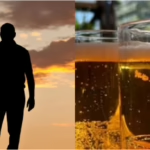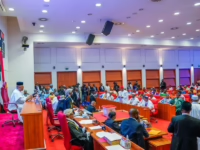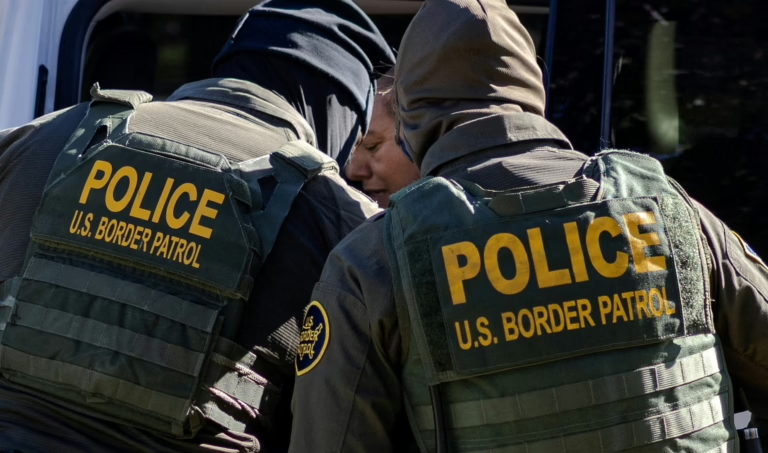The United States and Belize have entered into a formal “safe third country” agreement on immigration, allowing the Trump administration to reroute asylum applicants to Belize.
This arrangement marks the latest effort by the Trump administration to reduce asylum claims within the US and implement a comprehensive deportation policy.
Officially signed on Monday, Belize framed the pact as a testament to its commitment to global collaboration in line with the 1951 UN Refugee Convention.
In a statement shared by Belize’s government press office on Facebook, it was emphasized that “this agreement highlights Belize’s dedication to international legal standards and humanitarian principles, while safeguarding strong domestic protections.”
The US State Department’s Bureau of Western Hemisphere Affairs expressed appreciation to Belize through a post on X, describing the deal as “a crucial move toward halting illegal immigration, curbing misuse of the US asylum framework, and enhancing our collaborative efforts to tackle regional issues.”
“Safe third country” agreements are controversial mechanisms designed to restrict asylum claims by designating countries where asylum seekers can be redirected, regardless of their intended destination.
While the full details of the pact remain confidential, Belize indicated it would receive asylum seekers from the US in exchange for “financial and technical assistance to enhance Belize’s asylum processing and border management.”
Issues Raised About Third-Country Deportations
Since the start of President Trump’s second term in January, his administration has actively pursued agreements with third nations to accept deportees, though only a few have been officially designated as “safe third country” deals.
Countries including Costa Rica, El Salvador, Eswatini, Mexico, Panama, Rwanda, South Sudan, and Uganda have consented to receive US deportees who lack prior ties to those countries.
Guatemala recently accepted its first deportation flight from the US carrying migrants originating from third countries.
The safety conditions in some recipient nations have raised concerns. Critics point to issues such as severe prison environments and absence of fair judicial processes, particularly in places like South Sudan, which the US State Department advises against traveling to due to ongoing conflict.
Legal advocates representing five men deported to Eswatini reported that their clients were detained without access to legal proceedings.
Unlike general deportations, “safe third country” agreements specifically focus on asylum seekers and aim to uphold their rights and well-being.
Nonetheless, opponents argue these agreements frequently fail to guarantee asylum seekers’ safety, as many are sent to countries geographically close to their origin, where risks of persecution may still exist.
Human rights organizations also caution that such agreements could weaken international humanitarian commitments, enabling wealthy nations like the US to shirk their responsibilities toward asylum seekers.
In its Monday statement, Belize dismissed accusations that it would act as a “dumping ground” for migrants, a criticism directed at other third-party countries.
Belize stressed it maintains “full discretion to reject transfers, enforces nationality restrictions, caps the number of transferees, and performs comprehensive security assessments.”
“Individuals considered threats to public safety or national security will be prohibited from entering or remaining in Belize,” the announcement confirmed.
The agreement is pending approval by the Belize Senate.
New Trends in Immigration Strategy
The Trump administration defends these third-country agreements as essential when migrants and asylum seekers cannot be returned to their countries of origin.
However, sending asylum seekers back to places where they face danger contravenes both US and international law.
In some cases, the US asserts that deportees’ home countries have refused to accept them.
Recent events challenge this claim. For instance, a man deported to Eswatini in September was later repatriated to Jamaica, his native country.
Likewise, a recent deportation flight to Guatemala included Honduran nationals who were subsequently returned to Honduras.
Some countries maintain policies rejecting deportations from the US, even when their own citizens are involved.
Venezuela, for example, has intermittently refused US deportation flights but resumed acceptance in March.
Venezuela condemned the deportation of its nationals to El Salvador, where over 200 individuals were detained in a maximum-security facility known as the Terrorism Confinement Centre (CECOT) that same month.
In July, the US and Venezuela reached an agreement permitting Venezuelan detainees in El Salvador to return home in exchange for the release of US citizens and political prisoners held in Venezuela.
However, diplomatic ties between the two countries have since worsened, casting doubt on future deportation flights to Caracas.
As Belize prepares to receive asylum seekers unable to return home, some local politicians have voiced serious concerns.
Opposition leader Tracy Taegar Panton questioned Belize’s readiness to serve as a “safe third country.”
“To be designated a ‘Safe Third Country,’ Belize must demonstrate its ability to uphold human rights protections and provide sufficient support, including housing, healthcare, legal assistance, and social services for asylum seekers,” she stated on social media.
“The reality is quite different. Our immigration and asylum systems are underfunded, understaffed, and overwhelmed.”
She further contended that the agreement surpasses Belize’s current capabilities.
“Belize must not become a repository for migrants rejected by other nations,” she concluded.






















